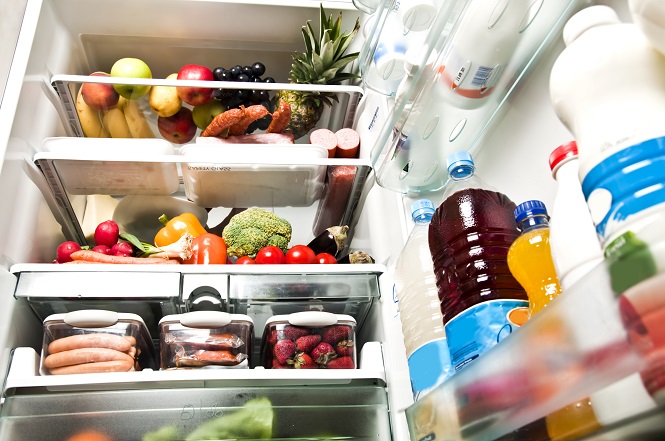 You may remember being a kid at the dinner table – your parents would chide you for wasting food – there are hungry people in the world after all. In fact, the amount of food waste created globally every year is more than enough to feed the 1 billion people who experience extreme poverty and hunger on a daily basis. However, that does not mean you should stuff yourself to the gills just to avoid guilt. There are others way to reduce the amount of food waste you and your family produce.
You may remember being a kid at the dinner table – your parents would chide you for wasting food – there are hungry people in the world after all. In fact, the amount of food waste created globally every year is more than enough to feed the 1 billion people who experience extreme poverty and hunger on a daily basis. However, that does not mean you should stuff yourself to the gills just to avoid guilt. There are others way to reduce the amount of food waste you and your family produce. In the home, at the grocery and during meals there are plenty of things to do to cut back on the food you end up tossing out. Try to think back to every time you cleaned out your fridge only to find two-month old mac and cheese in the back corner? Yes, the image is terrifying, but it’s also a reminder to be more mindful about the amount of food you buy, cook and eat. By being proactive and thoughtful – and following some of these easy tips – you will be able to bring down your food waste output and maybe even get a bit healthier in the process.
- Shop smart and meal plan – This is one of the easiest ways to reduce your food waste. By planning meals – and knowing exactly what you need at the store and how much – you will lower the risk of tossing out extras. When it comes to perishable items such as milk and bread, buy them when you actually need them, or freeze them if you buy too soon. If you aren’t such a hot shot of meal planning – or if you find yourself planning a meal and then changing your mind – try your best to be creative with what ingredients you have. For example, if you were planning spaghetti and meatballs one night and grilled chicken then next, you could always do a swap and make chicken Parmesan. This website can also help you up your meal-planning game.
- Avoid overly full refrigerators – A fully stocked fridge may feel great, but is everything in there actually still edible? Remember the mac and cheese leftovers from earlier? Since you do not want a repeat episode, be cognizant of what is going in and out of your fridge. If you notice the large container of yogurt always goes bad before you finish it, maybe it is time to start buying the smaller container. Also, if you seem to always have leftovers but you never actually eat them, it is time for a new strategy. You can always cook less, actually eat the leftovers or freeze them for future use. However, if you never intend to eat them, stick with tip #1.
- Store things properly – There are reasons why your refrigerator has a “produce drawer,” and why there is such a thing as a breadbox. Certain foods need to be stored in different ways, and not just freezer, fridge or cupboard. Learn how and where to keep certain foods and they will likely last much longer. This website can help you determine what goes where. If you are still struggling to keep foods fresh, you may be buying way more than you need. This goes back to proper meal planning and realizing exactly how much food you and your family actually needs to eat.
- Understand your own food consumption – Being aware of how much you eat and when you are full can be a great way to reduce food waste and maybe even your waistline. There are many studies that suggest humans eat differently depending on certain psychological and environmental factors. For example, researchers found that eating while watching television may make you eat more than you need. Try to feel your body out; eat slowly and with intention. Once you know how much you actually need, you can adjust your shopping list – and belt – accordingly.
- Throw away food in a sustainable way – Just because you aren’t going to use something doesn’t mean someone else won’t – or that you can’t repurpose it. For example, leftover meat scraps can be used to make homemade stocks. Or if you know for a fact that the can of creamed corn sitting in the back of the pantry will never get eaten, donate it to a food bank. If you are a gardener – or want to support other gardeners – you can build a compost box. Organic materials, such as food scraps, can biodegrade to become awesome soil and fertilizer that is natural and sustainable. If you do not need it, there are plenty of people in your town who probably do.
- Don’t believe everything you read – “Use by” dates on nearly all foods are merely suggestions and do not need to taken 100 percent literally. In fact, many products that say, “Best by” actually last much longer. In these cases, it is simple common sense that will keep you from guessing. If the food looks and smells all right, it probably is. If you see something in your refrigerator that needs to be used but you know won’t be, there’s always the freezer. And those lemon or orange peels? They can actually be repurposed into tons of different things, from zest to candles. See more on that here.